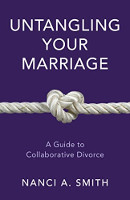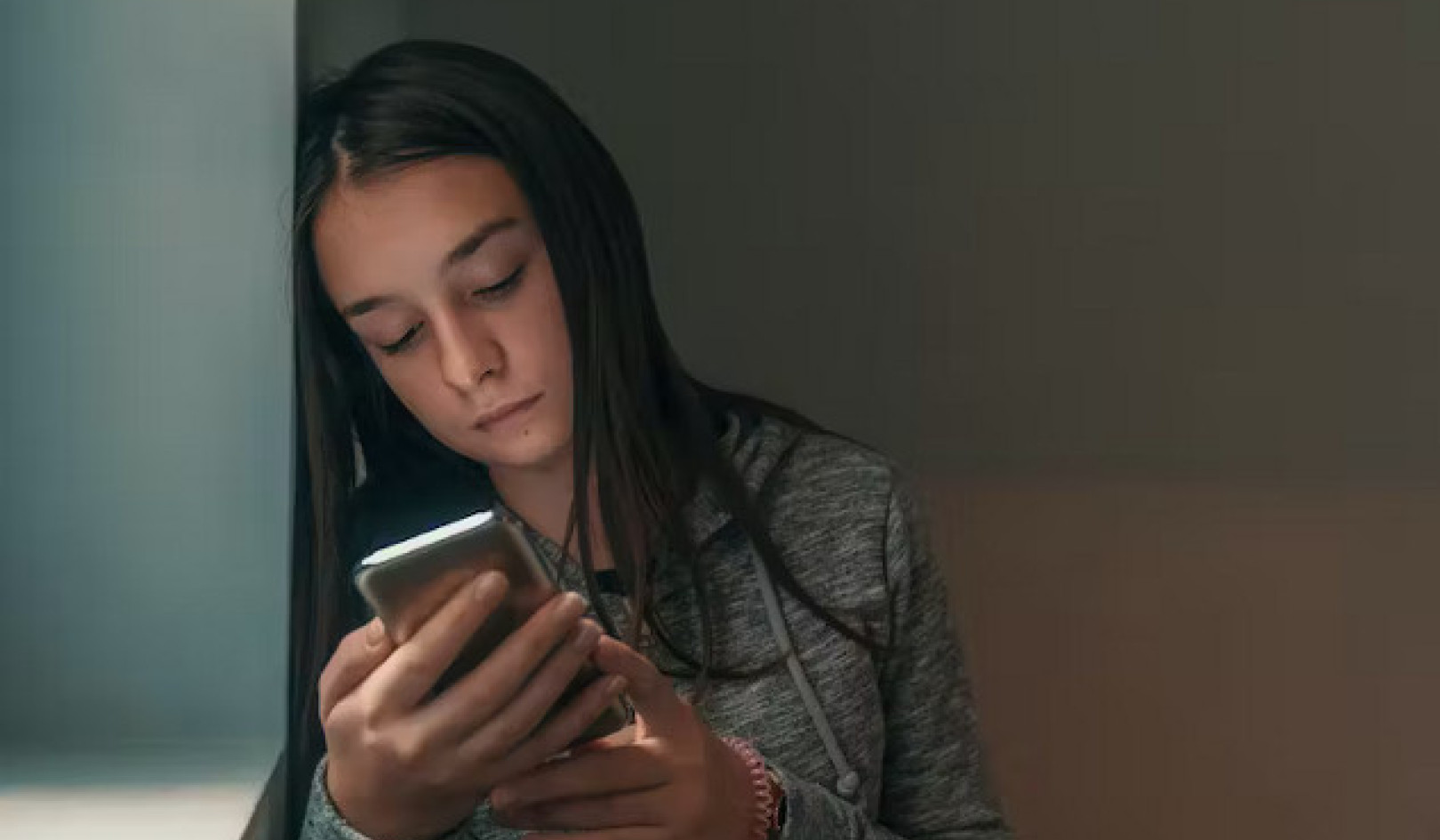
Image by Jan
Your psycho-spiritual-emotional health is the key to a successful legal divorce. The times are changing and you can now exert more control over your divorce than you may realize. Collaborative divorce is a relatively new divorce process that is fully legal and downright practical. It is practiced in every state in the United States and throughout the world in Canada, Australia, Italy, England, and Israel, among other countries.
Collaborative Divorce: A Process and a Mind-set
Do you want an amicable divorce? Do you think your spouse would want an amicable divorce? Are you willing to stand up to pressure from friends or family about how you should divorce? Is having a future, functioning relationship with your former spouse important to you?
Collaborative divorce, an out-of-court dispute resolution model, is a way to make meaning of your life during and after your divorce. It may sound weird at first but it, compared to a contested divorce, can be less stressful for you and your family and more economical.
Finding a Collaboratively Trained Attorney
Tell your spouse that you hope you can have a truly collaborative divorce and then research collaborative divorce attorneys or a collaborative divorce practice group of professionals near you. Look for their affiliation with the International Academy of Collaborative professionals and read websites to find a professional to guide you.
Schedule an introductory meeting, with or without your spouse, to see if it’s a good fit.
Once you and your spouse have found your collaborative attorneys, you should expect to receive an intake form and a retainer agreement, explaining how you will be charged for the lawyer’s time and expenses. Many attorneys will require a retainer -- an advance against which the lawyer can bill and be paid for future work.
After retaining a lawyer, you will receive a participation agreement to help you understand and fully consent to the collaborative process. Every collaborative divorce has roughly four stages: initial preparation, information gathering, idea generation, and document production and signing. Your attorney is there to answer all your questions and offer legal and other guidance throughout the process.
Collaborative Divorce: The Team Approach
Collaborative divorce is a trust and accountability-building process. In addition to your lawyers, a collaborative divorce enlists a mental health coach and a financial neutral.
The role of the mental health coach is to normalize intense emotions and create safe spaces for each of you to articulate your feelings. By dealing with emotions first and foremost, they help move the process forward. They are not there to judge you or make mental health diagnoses. Remember, these folks are highly skilled at relational dynamics and have extensive clinical experience with all types of issues. It is unlikely that whatever you and your spouse are doing is new to them. They are also skilled in conflict management and effective communication.
The financial neutral is there to help you understand the financial realities. The collaborative financial neutral is also highly skilled in conflict management and understands that people have a lot of feelings when it comes to their money, or their perception of what is their money. The financial neutral will be the point person to collect, organize, and present the financial data to the couple and their lawyers. They help generate ideas that make sense for the whole family, when the time comes for settlement discussions. They will not sell you products or manage your money.
Once the team has been established, the lawyers, mental health coach, and financial neutral will meet to discuss the scheduling of subsequent meetings to do everything that happens in a traditional divorce, but without the acrimony, so that the issues are effectively addressed and resolved.
Sometimes, other professionals may be necessary to help put this new life together. For example, you may need an appraiser to value real estate, or a realtor to do a market analysis or help find alternative housing or possibly sell a marital home, if that is the ultimate outcome.
If a business is involved, a business appraisal may be needed. If there is a pension or other deferred compensation plan, there may be an actuarial analysis of the present value of the asset, or the need for a QDRO (Qualified Domestic Relations Order). Where needed, the lawyers will recommend a professional they each trust to provide accurate data upon which everyone can rely. There will not be a “battle of the experts,” as there is in traditional litigation.
Putting It All Together
That’s it. Engaging in the Collaborative Divorce process is the start of the divorce. No service of process by a sheriff, no nasty lawyer letters, no demands for financial discovery or to show up in court on a specific day— just a gathering of professionals to help the divorcing couple strategically plan for a peaceful and amicable divorce, where the couple can emerge healthy and whole-hearted, not bitter and resentful.
However long it takes (three, six, eight months, or a year or two), a time will come when each spouse is ready, and the divorce process will wrap up. That occurs when both spouses are psychologically ready to be divorced. This happens naturally — a magic moment when each person realizes this is really best for all involved, and there are no longer those common, and acutely negative feelings about each other.
By this stage of the divorce process, it is common to feel somewhat neutral toward the other spouse and even pretty good about them. People see that life will be fine, if not better, without being in the marriage anymore. Parents can see their children doing well, adapting, and free to love each parent, wherever they are in their own process and experience of the divorce. The Collaborative Divorce couple has managed to improve communication. This helps, a lot.
Divorcing well is probably the toughest experience you will ever tackle. By staying strong, and with good support, people can emerge with their psycho-spiritual-emotional health intact. This is good for all of us.
Copyright 2022. All Rights Reserved.
Printed with permission of the author.
Book by this Author:
BOOK: Untangling Your Marriage
Untangling Your Marriage: A Guide to Collaborative Divorce
by Nanci A. Smith, Esq.
 Divorce is hard, but it doesn’t have to be so painful. This book is an open and honest portrayal of divorce from the perspective of a veteran divorce attorney, who has also been divorced. Collaborative Divorce offers a different, more peaceful path to ending a marriage; and Nanci Smith shows you how to do it.
Divorce is hard, but it doesn’t have to be so painful. This book is an open and honest portrayal of divorce from the perspective of a veteran divorce attorney, who has also been divorced. Collaborative Divorce offers a different, more peaceful path to ending a marriage; and Nanci Smith shows you how to do it.
This book is a myth buster, and an antidote to the negative messaging about divorce. It offers hope and encouragement for the reader to choose a divorce process that aligns with their own core values. Values such as dignity, mutual respect, integrity, and compassion. It offers the reader an introduction to Collaborative Divorce, both the mindset and the process, as it has been established and practiced for the past thirty years.
We live in a time of volatility, uncertainty, complexity, and ambiguity. A divorce is just like that, and the antidote to those conditions include concepts like collaboration, deep listening, innovation, flexibility, and an ability to pivot. Collaborative divorce is an opportunity to emerge from a divorce, healthy and wholehearted, not bitter, and resentful. Learn how to do it in this book.
For more info and/or to order this book, click here. Also available as a Kindle edition.
About the Author
 Nanci A. Smith, Esq., is an attorney licensed to practice in Vermont and New York. She is the chair of the Collaborative Divorce section of the Vermont Bar Association, a leader in her collaborative divorce practice group, and a member of the International Academy of Collaborative Professionals. She frequently writes and talks about divorce, family law, ethics, and collaborative divorce practices.
Nanci A. Smith, Esq., is an attorney licensed to practice in Vermont and New York. She is the chair of the Collaborative Divorce section of the Vermont Bar Association, a leader in her collaborative divorce practice group, and a member of the International Academy of Collaborative Professionals. She frequently writes and talks about divorce, family law, ethics, and collaborative divorce practices.
Nanci Smith is the author of Untangling Your Marriage: A Guide to Collaborative Divorce (Rowman & Littlefield Publishers, Oct 11, 2022). Learn more at nancismithlaw.com.























